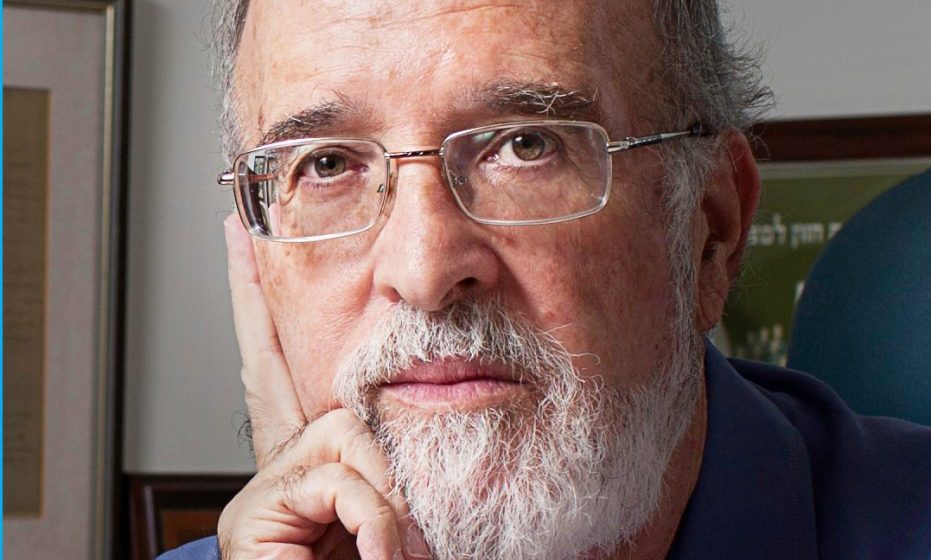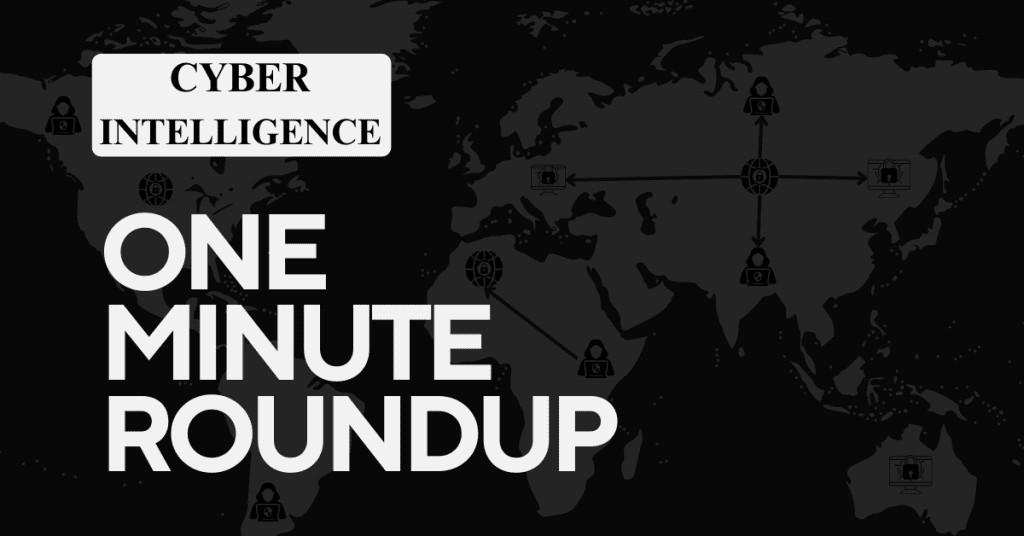In an exclusive interview with Cyber Intelligence, top Israeli military scientist Prof. Isaac Ben-Israel reveals that Iran has tested a missile in space that could strike the UK and assesses the likelihood and nature of a full-scale outer-space cyber war and why children should be taught cybersecurity in elementary school.
Cyber Intelligence: Is there a danger that cybercriminals or rogue nation states can hack into the growing number of satellites now circling the globe, especially given the United States’ current concerns that Russia may soon attempt to disable Western satellites by any means it can?
Prof. Isaac Ben-Israel: Geopolitical communications use mainly geostationary satellites that circle the globe at altitudes of 40,000 km, which is why they appear to be stationary from the ground. These can be interfered with either by hacking into the computers on board the satellite or attacking the ground stations which communicate with them. It is possible to hack into the satellite computers but it is very complex and highly-skilled procedure, so it is far simpler and more straightforward for a threat actor to compromise the ground stations just as they might any other ground-level communications hub – it would be that easy!
Cyber Intelligence: What then are the chances of a cyberwar in space?
Prof. Isaac Ben-Israel: Ever since the launch of the Sputnik satellite by the Soviet Union over 60 years ago, there has been an unwritten peace agreement regarding space, although a formal treaty has never existed.
The only exception to this so far was when Edward Teller, the father of the H bomb, proposed to the Ronald Reagan administration in the US that, as missiles bearing nuclear warheads would take only 20-30 mins to reach the US from the Soviet Union, satellites with extremely high-powered lasers could be used to shoot them down. Although the project, nicknamed ‘Star Wars’ after the George Lucas movie, was never actually undertaken, the Soviet Union virtually bankrupted its economy trying to keep up a perceived arms race, leading to its eventual dissolution.
Apart from this, space has so far been kept free of the war-mentality that often operates on land. For example, the ISS international space station is manned by an international team of 5-10 astronauts who are replaced every few months. When the US space shuttle program ran into problems, the Russian Soyuz ferried the US astronauts to the space station, representing a level of mutual co-operation not seen on Earth. Somehow space has become the last frontier that humanity has not militarised – so far!
Cyber Intelligence: What about the defense satellites launched by Iran on January 28th of this year?
Prof. Isaac Ben-Israel: The satellite launch was an excuse used by Iran to develop and test a rocket as part of its missile program, as it now has the capability to launch missile attacks as far away as London. As Iran is also quite far advanced in its nuclear program, this is something that really should keep Londoners awake at night. It is particularly
dangerous if countries who believe they are directed by the voice of God have their finger on the nuclear button. Even during the Cuban missile crisis, the Soviet Union, whether you agree with Communism or not, took an essentially rational and pragmatic approach to the situation – something that theocracies such as Iran are by definition not capable of doing.
Cyber Intelligence: What, then, are the main cybersecurity challenges we are now facing as we approach the middle of the decade?
Prof. Isaac Ben-Israel: The Apollo spaceships in the 1960s did not have on-board full computers as the computers of that era were simply physically too large to send into space. But Moore’s Law, the observation that computer power roughly doubles every one and a half years, means that the power and scalability of computers has doubled 42 times since then. This means that in the intervening 60 years since manned space flights began, computing power has increased about 10 trillion times. This has meant that computers have become far smaller and far, far more powerful, enabling us to use them to store and communicate all types of information. This has massive implications for cybersecurity.
Cyber Intelligence: What is the main cybersecurity challenge today?
Prof. Isaac Ben-Israel: Cyber-attacks began in the 1980s. At that time, only six or seven countries, including the US, the UK and Israel, had the capacity and the need to do this. From the 1990s this cyber warfare has been escalating to the domain of physical damage. But in 2010 cybersecurity finally came out of its top-secret closet and entered the public arena, following the cyber-attack that physically destroyed Iran’s centrifuges, an essential part of its nuclear program. Since then, cyber-attacks have been used for three clear purposes: to gather intelligence; to cause physical damage, and to influence public opinion, such as Russia’s attempt to influence the outcome of US elections. Now there is a new challenge with the widespread adoption of artificial intelligence (AI).
Cyber Intelligence: What is the difference between AI and the kind of exponential escalation of computing power illustrated by Moore’s Law?
Prof. Isaac Ben-Israel: Alan Turing wrote a paper defining artificial intelligence as being when you cannot distinguish between a computer’s response and a human response. So we are talking about things like ever more convincing deepfake videos that not only look and sound human, but also give answers and responses that are ostensibly indistinguishable from genuine humans.
Cyber Intelligence: What then is the solution to AI-powered cyber-attacks using AI-powered deepfake videos?
Prof. Isaac Ben-Israel: We can develop algorithms that can detect fake human communications. Your device could have something like a simple traffic-light system giving red and amber alerts when deepfakes are detected.
Cyber Intelligence: But I suppose that threat actors will always develop ways to fool the algorithms – are there any long-term cyber defenses that can be applied?
Prof. Isaac Ben-Israel: Education is the answer, as is frequently the case. The most practical approach is to educate people how to navigate Twenty-First Century cyberspace safely and responsibly, just as we do with Twentieth Century road safety skills. In 2011, I was asked by the Israeli government to implement a national cybersecurity program. I proposed that high-school students, not only university undergraduates in science subjects, should be educated about cybersecurity and this is now part of the national curriculum in Israel, where it is now also being extended to elementary schools.
Cyber Intelligence: Isn’t cybersecurity a little beyond most 5-11 year olds?
Prof. Isaac Ben-Israel: Obviously, they would not be taught to code. A good analogy is road safety. No-one would dream of teaching elementary schoolchildren to drive a car – but that doesn’t mean that we shouldn’t teach them how to cross the road safely without being run over.
Cyber Intelligence: So it looks like we will be bringing up whole generations to fight this continuous battle with threat actors in cyberspace – wouldn’t it be simpler just to limit our use of digital devices?
Prof. Isaac Ben-Israel: Not unless you want to turn back the clock to medieval times, which is the philosophy adopted in theocracies such as Iran. Just as people cannot do without cars, they cannot do without constantly-evolving digital technology, which impacts our lives in every way, from healthcare to space travel.
Cyber Intelligence: Thank You
Isaac Ben-Israel biography:
Isaac Ben-Israel served for the last 17 years as the chairman of the Israeli Space Agency and the National Council for Research and Development and is the former Director of Defence R & D Directorate in Israel MOD. Between 2010 and 2012, he launched Israel’s National Cyber Initiative. Ben-Israel is now head of the Blavatnik Interdisciplinary Cyber Research Centre at Tel Aviv University, where he also heads the annual international Cyber Week conference. Ben-Israel is one of Israel’s top experts on Space, Cyber, and technological-related security. He holds a PhD in Philosophy and a BSc in Physics and Mathematics from Tel Aviv University. In 2018, Ben-Israel submitted to the government a national plan with a goal to put Israel among the first top 5 countries in the world, in Artificial Intelligence.

